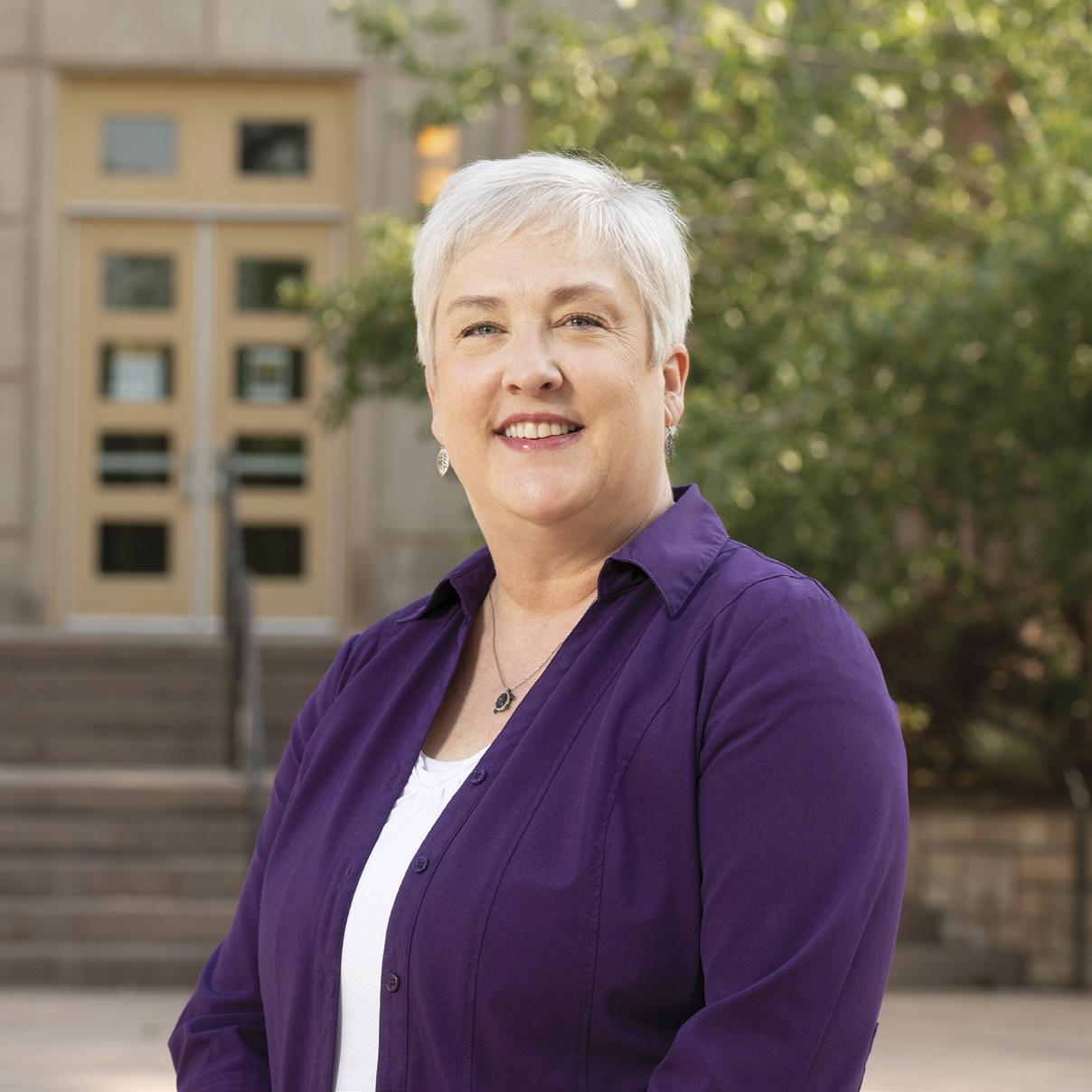
4 minute read
E4 Integration: How TEI is Reshaping Educator Preparation at UW
E4 Integration:
How TEI is Reshaping Educator Preparation at UW
By Jason Harper
Years of hard work and planning came together this fall when entering elementary education students became the first to start their journey toward becoming career-ready teachers under the UW-E4 educator preparation model. This model is reshaping College of Education programs and is the centerpiece of TEI’s work.
TEI has been engaged with college leadership and faculty to integrate programmatic changes and additions that will attract more educators into the field, ensure they are better prepared, enhance their opportunities for student teaching and other field clinical placements, and offer early-career professional support.
“It’s quite thrilling to see the stages of the TEI student journey not only materializing, but now engaging and serving our prospective students, current students, and faculty,” says UW-E4 Director Curtis Biggs. “Just as exciting is the challenge for TEI and the college to remain nimble and adaptable to the needs and ideas of our faculty, students and school partners. As education continues to evolve, our educator preparation programs mustn’t stand still.”
The following is a quick overview of what students and partners throughout the state can look forward to with this year’s initial implementation of the of UW-E4 model.
Exploration of the Career
Six Wyoming high schools are the first to participate in the Teacher Cadet pilot program. This opportunity combines activities, internships and coursework to give students a jumpstart to becoming a teacher. The initial cadre of high school and community college faculty and advisors that will support these groups throughout Wyoming were trained and certified during summer 2020.
E2
Experiential Learning
Whether it’s observing experienced teachers in a school setting or using the Mursion augmented reality program to teach avatar students, UW elementary teacher candidates now get more field experiences starting earlier and with a solid grounding in professional ethics. Site-based practice has been expanded and aligned with coursework, so students hone their teaching skills through every phase of the program. Access to the elementary education program is also expanded, with many of the courses now redesigned for the online environment, with the rest to be built and online in the coming year. A combination of effective course structure, cutting edge course design, and current content make these courses an exemplar of engaged learning.
E3
Embedded Practice
In the past, student teaching was limited to nine Wyoming districts during the spring semester. Now, students have more options, and more schools are getting the student teachers they want. Expanded placement options last spring resulted in UW student teachers in 27 Wyoming districts; plus, there were an additional 11 out-of-state and six international placements.
Better mentors make better teachers. TEI is also supporting classroom teachers who supervise, assess and mentor UW student teachers. New online training modules will be introduced in the 2021 to guide K-12 mentor teachers in best practices for supervising and co-teaching.
Consistent observation, feedback and intervention during student teaching is crucial. Seven UW faculty and staff members were trained and certified over the last year in the Classroom Assessment Scoring System (CLASS), a research-based tool that helps observers provide uniform scoring of student teacher observations. CLASS focuses on the quality of classroom interactional processes, and results help ensure that student teachers who need additional support can get it before graduation and certification. These certified trainers can now train additional UW faculty and teacher observers throughout the state. CLASS is one of four tools in the Common Indicators System (CIS) compiled for a national initiative by Deans for Impact, a national organization working to improve student-learning outcomes by transforming educator preparation.
E4
Entry into the Profession
Are our new teachers effective when they start their careers? How do you even measure that? E4 aims to measure the effectiveness of teachers and integrate new and evolved ideas into both the teacher preparation program and onboarding support systems. The CIS tools were launched at UW this year to collect baseline data to gather student’s perceptions about their teaching knowledge and abilities early in the teacher preparation program, in their final semester before student teaching, and at the end of their first year of classroom teaching. A separate survey tool collects feedback from the principals who employ recent UW graduates.
The Common Indicators tools will provide administrators and faculty leaders with a comprehensive data collections suite to supply insights on teacher candidate development and to guide continued program improvement.
New Executive Director
Leslie Rush, interim dean of the College of Education, assumed the role of TEI executive director upon the planned retirement of D. Ray Reutzel as dean of the College of Education this summer. Rush has already been embedded in the work of TEI after previously serving as associate dean of undergraduate programs and director of the School of Teacher Education since 2017.









